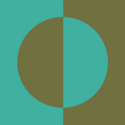Difference between revisions of "Terumahilana"
m |
m |
||
| Line 7: | Line 7: | ||
image_flag = Flag_terumahilana.png| | image_flag = Flag_terumahilana.png| | ||
image_map = Map_terumahilana.gif | image_map = Map_terumahilana.gif | ||
| − | image_topo= Topo_toudeigung.jpg| | + | image_topo = Topo_toudeigung.jpg| |
official_languages = | | official_languages = | | ||
capital = | | capital = | | ||
Revision as of 22:58, 5 April 2007
| Expert | Nekogami and Taiar | ||
| |||
| [[Image:Map_terumahilana.gif
image_topo = Topo_toudeigung.jpg|250px|Map of Terumahilana "Land of Trees and Mist"]] | |||
| Capital | |||
| Largest city | |||
| Government Title
|
Feudal | ||
| Settlement |
|||
| Official Language(s) | |||
| Official Religion | ancestral worship | ||
| Currency | gum | ||
| Predominant resident races are humans and Long. | |||
Contents
Briefly
"Terumahilana is home to two distinct groups: humans and the Argovian dragons called "Long". Long are very unlike Aldrosian dragons as they have a complex society of clans and are quite physically different. What ties them most to draconity are there elemental affinities and abilities, though they are wingless. The humans have close ties with Longs but interbreeding is rare despite this closeness. It is comparable mostly to Ancient China.
"Cities:
"In the North: There is Heian and Changan. In the middle there is Fuzhou and to the south Anshur. Heian and Changan are closests to Beau and the hub of trade for Terumahilana."
-- Nekogami
Miscellany
Flag
Specifications: The flag of Terumahilana is to be in the shape of a regular square. A circle should be placed in the center with a diameter of 13 units in ratio to 18 units of each flag side. The flag is divided symmetrically along the vertical axis in such a manner as to create four shapes, two of which are hemispheres of the central circle. These four shapes are colored with the flag's two colors in such a manner that a shape of one color touches only shapes of the other color.
The two colors of the flag are the aqua of the sea and earthen brown. The aqua is to be made of red, green, and blue in parts of 4, 11, and 10; the brown in parts of 7, 7, and 4.
While the flag should be vertically oriented, otherwise it is proper to fly the flag from either of the other two sides.
Symbolism: The geometry of the flag, with the perfect square and circle shapes and overall symmetry, represents balance--balance between the earth and the sea, light and dark, work and play, human and Long. At the flag's conception, the idea was to visually depict two very separate factors--such as the human and dragon cultures which comprise Terumahilana--forming a coherent whole.
To display the flag with a horizontal alignment is to be avoided as it places one of the "factors" distinctly above another. To do this as a foreigner is, at best, to show one's ignorance; at worst, it's a sign of contempt of local culture. As a native, to knowingly fly the flag the wrong way is a deliberate insult to both individual communities as well as the national community, which operates on the aforementioned principle of its different people working together. It may well be viewed as an attempt to cause harm to the community.
The colors are derived from the color of sea water and from the soil of Terumahilana, which provide the nation its primary sources of self-sustenance in the means of fishing and farming.
Money Matters
| Denomination | Shape | Material | Image |
|---|---|---|---|
| 1 | Small Circular | Nickle | Rabbit |
| 5 | Pentagon | Copper | Tenminglong Mountains |
| 10 | Oval with Grooved Edges | Steel | Panda |
| 50 | Diamond | Silver Alloy | Phoenix |
| 100 | Large Circular | Gold | Twin Dragons |
| 1000 | Bills | Paper | Seven Sages and the Boar |
| 5000 | Bills | Paper | Creation of Man from Dragons |
Terumahilana has the gum, which comes in denominations of 1,5,10,50, 100, 1000, and 5000. 1 gum is a small circular nickel coin with a rabbit on the front. 5 is pentagon made of copper with the Tenminglong Mountain chain on it. 10 is a steel oval with a grooved edge with panda eating bamboo on it. 50 is a silver alloy diamond shaped coin with a flying phoenix. The denominations have holes in their centers so that a string or rod may be put through them for easy arrangement or storing. The 100 gum is a large gold coin with twin dragons locking claws and has a grooved edge. The back of metal coins simply state the year of minting, the lord of the minting region, and the denomination amount in Lanese charaters. 1000 and 5000 gum are both paper denominations. 1000 gum depicts the story of the seven sages and the boar. 5000 gum has the creation of man from dragons depicted on it. There are Min Long Sutras on the back of these denominations for good luck and promotion of wealth.
